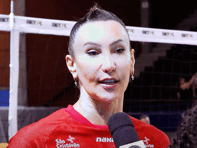Part of Outsports’ series on our 100 most important moments in gay sports history.
Baseball, 1999. When Jeff Pearlman was assigned by Sports Illustrated in 1999 to write a story about Atlanta Braves relief pitcher John Rocker, he was expecting to pen an image-rehabilitation article. Pearlman told Outsports this week:
I knew he was something of a loose cannon; knew he certainly did some so-called odd and outrageous things. But did I know he had such … uh, anger inside of him? No. Truthfully, I went into that assignment thinking it'd wind up being the "Here's the perception of this guy—but really, he's not what you think." And I guess, in a sense, that's how it turned out. But not in the manner I had anticipated.
Part of Outsports’ series on our 100 most important moments in gay sports history.
Baseball, 1999. When Jeff Pearlman was assigned by Sports Illustrated in 1999 to write a story about Atlanta Braves relief pitcher John Rocker, he was expecting to pen an image-rehabilitation article. Pearlman told Outsports this week:
I knew he was something of a loose cannon; knew he certainly did some so-called odd and outrageous things. But did I know he had such … uh, anger inside of him? No. Truthfully, I went into that assignment thinking it'd wind up being the "Here's the perception of this guy—but really, he's not what you think." And I guess, in a sense, that's how it turned out. But not in the manner I had anticipated.
Rocker had a reputation as a wild guy, known for his sprint from the bullpen to the pitching mound. He had a hate-hate relationship with fans, particularly those in New York. But when Pearlman asked him how he’d feel about playing for a New York team, Pearlman didn’t see the answer coming:
I would retire first. It's the most hectic, nerve-racking city. Imagine having to take the [Number] 7 train to the ballpark, looking like you're [riding through] Beirut next to some kid with purple hair next to some queer with AIDS right next to some dude who just got out of jail for the fourth time right next to some 20-year-old mom with four kids. It's depressing.
What makes this moment so important was the reaction. When the article was published, John Rocker became a household name synonymous for many with homophobia, sexism and racism. While homophobia was no secret in sports, the venom with which he spoke made Rocker the poster child for it. And not in a good way. He was the butt of late-night jokes and trashed by sports columnists.
Major League Baseball commissioner Bud Selig suspended Rocker without pay for the first 28 games of the season, which was reduced to 14 games upon appeal.
The article had a big impact on Outsports. We had just begun publishing when the article was published, and until then we had focused exclusively on the NFL. It was this article, in addition to requests by readers, that opened our eyes: There was more to talk about. Our list of anti-gay athletes has since been measured on a "Rocker scale."
Pearlman has seen Rocker only once since the article was published, in June of 200o. "We had a confrontation in the bowels of Turner Field, when he was still with the Braves," Pearlman said. "It was ugly. He was angry, I understood his anger and just took it."
Rocker again made homophobic remarks to patrons at a Dallas restaurant in 2002. In 2006 he defended Ozzie Guillen for using a gay slur.
Pearlman said he thinks the first openly gay active pro athlete may get a lot of razzing, but he can't see a physical threat to the player from other athletes.
Do I think he'd face more punishment, physically, on the field? I don't—because it'd be sooooo obvious, the deliverer of pain would become a greater outcast than the gay player.
On Oct. 4, Pearlman will release a new book about "Sweetness: The Enigmatic Life of Walter Payton."
For more information:








































